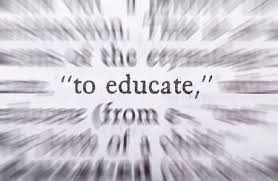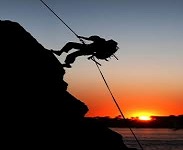Recruiting a Successful High Performance Team in High Performance Sport

Gone are the days of the “Guru” sports coaches: the “Super Coach” of the past has lost his powers to the kryptonite of modern sport – i.e. the increased complexity and sophistication of high performance sports environments.
Sure, the great names of coaching have all been “one man bands” – strong, decisive, authoritarian, personal leadership focused head coaches who controlled every aspect of the team’s performance.
However, high performance sport has developed at an incredible rate over the past twenty years and the knowledge and skills required to win a high performance sporting competition are greater than any one person can bring to the table.
Think of the advances in performance science, sports science, sports medicine, analysis, IT, nutrition, psychology and technology since the 1980s.
How can we expect that any one person can be the expert in all performance areas plus coach the team, deal with the media, work with Club Board and Executive, recruit new players, talk to sponsors, meet the fans etc etc etc?
So – the Coaching Team and High Performance Team concepts are born.
In the past, sporting organisations have recruited “Head Coaches” and given them the freedom to change all aspects of the team’s performance environment from the recruitment of young athletes to the strategies and tactics of the senior team.
However, as sport has become more complex and increasingly sophisticated in all performance areas, sporting organisations have realised that often what is needed is a precise set of specialist skills, knowledge and experience to help them perform – a skill set which is unlikely to be provided by a single individual – no matter how talented he / she may be.
In response, organisations have begun developing “Coaching Teams” or “High Performance Teams” to provide the solutions to their performance problems.
The first step in creating a Coaching or Performance team is to comprehensively review the organisation and identify it’s needs in the coaching and performance areas.
Once this has been completed, a “Performance Skills Profile” is developed which details the skills needed by the organisation to compete successfully.
Then the process of identifying the right people (i.e. as opposed to the right person) to provide these skills can be undertaken.
For example:
CLUB needs coaching skills: A,B,C,D,E,F,G,H,I,J AND K.
Head Coach has coaching skills: A,B,C,D,H AND K.
Support Coach One has coaching skills: E,F, I, J AND G.
Support Coach Two has coaching skills: E,F AND G.
So by hiring these three coaches – a “Coaching Team” – the Club gets the full compliment of coaching skills it needs right now.
This “Coaching Team” concept also applies to the wider “Performance Team”.
For example:
The organisation needs performance skills A,B,C,D,E,F,G,H,I,J,K,L,M,N,O,P and Q which are a combination of coaching, sports science, strength and conditioning and medical team skills.
Head Coach has performance skills A,B,C,D,E AND L.
High Performance Manager has performance skills F,G, I AND Q.
Strength and Conditioning Co-ordinator has performance skills H,I, J AND K.
Team Medical Director has performance skills M,N, O and P.
Summary:
When recruiting, a sporting organisation needs to clearly understand its performance needs right now.
The organisation needs to identify what skills, knowledge, abilities and experience can help them achieve their performance goals – understanding that with the complexity of modern sport, it will be necessary to employ a team of people rather than try to find a “guru” who can successfully drive all key performance areas at a high level.
The more elite the level of competition, the greater the attention to detail needs to be in all performance areas – and therefore the greater the need for a performance team with high level specialist expertise.
The organisation also needs to accept that their current performance needs will change over time. This means they have to commit to:
- Ongoing training and development of all professional staff
- Ongoing assessment and evaluation of all professional staff
- Review and – if necessary – change of professional staff
The organisation needs to think progressively, innovatively and creatively rather than follow the existing performance team models of other teams and Clubs. There is no one “perfect” performance model for all teams, all sports and all levels of performance.
Wayne Goldsmith



0 Comments